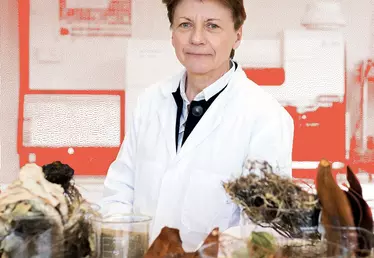

Hero banner custom title
Four plants that decontaminate your garden soil
2 min
Whether by absorbing, capturing or breaking down toxic materials, certain plants can actually help remove pollution from your soil.
Is your garden located on a former industrial site or near a conventional farm? Believe it or not, there is an efficient and ecological way to clean contaminated soil: plants.
This technique is known as phytoremediation. "It works by using the metabolism and natural properties of plants that extract, immobilize or break down pollutants on the surface of the soil," explains Frédéric Pitre, a researcher at the Plant Biology Research Institute at the University of Montreal. In fact, it takes "a few years to degrade organic contaminants like diesel... but decades for heavy metals!"
Sunflower
Sunflowers - which thrive in hot, dry climates - offer many advantages in addition to their beautiful yellow flowers. They naturally extract certain pollutants (such as zinc, copper, or cadmium) through their roots. This is called phytoextraction. Since pollutants accumulate in the stems and leaves, simply cut off the wilted flowers and dispose of them in the trash. Sunflowers can be sown in full sun, after danger of frost.
Milkvetch
Originating in the Mediterranean basin, this small plant with elegant leaves retains soil pollution in its roots (phytostabilisation). Easy to maintain, it prefers porous, sandy or rocky soil and plenty of sunshine.
Miscanthus
To tackle heavy metals (lead, zinc, etc.), turn to Miscanthus, also known as "silver grass" or "elephant grass". Native to Africa and South Asia, this beautiful tall grass (up to five meters!) absorbs and locks pollutants in its root system. Extremely resistant and requiring little maintenance, it’s perfect for gardeners of all skill levels
Willow
Some trees also have decontaminating properties, such as willows. Native to temperate regions of the northern hemisphere, the enzymes of these trees that prefer cool, wet conditions absorb and decompose hydrocarbons, pesticides and arsenic through a process known as phytodegradation.
Share it:













